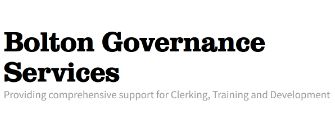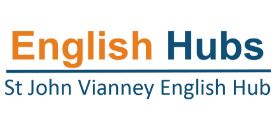Encouragement – Case Studies
Find out what other schools are doing:
Case Study A – Reading Struggles
Child A is a good reader, a good decoder and has good comprehension skills. New phonic decodable books are sent home from school weekly and also a book for pleasure. Child A is reluctant to read when he comes home from school. He is tired and hungry and needs some chill time, to wind down from the day. Child A’s parent is a teacher. Although she has answers and advice for other parents in her school setting, she struggles to engage her own child at home.
[expand title=”CLICK HERE to read more“]
The parent’s ultimate aim is to encourage her child to willing engage in reading without rewards and to do it because he enjoys reading. She wants him to develop a culture where is doesn’t seem as much of a task and is done for pleasure.
Finding children’s interest and tuning into their hobbies helps. Taking Child A to the library each week to choose his own books that interest him. This has increased his engagement in reading and wanting to read without being asked. Finding a good time in the evening to read has also helped. Not straight away, when they arrive through the door or just before bed but maybe once they have eaten, been bathed and in their pyjamas.
There are lots of key factors in making reading with your child a successful experience. Having that quality, quiet time with them one to one. Being in a comfortable and calming environment and reading a book that interests them and that they enjoy. Using my turn, your turn also helps in making sure your child is not overwhelmed with the amount of reading they have to do.
Reading Project Case study Reading Struggles (002)
[/expand]
Case Study B – Reward Challenges
There is uncertainty if children should be rewarded for reading. Should reading for pleasure be the reward? Rewards have been tried and tested to encourage children to read at home. An example of a reward has been children reading 5 times a week, they then collect stars and the children with the most at the end of the half term would earn themselves a lovely treat! [expand title=”CLICK HERE to read more“]A cinema visit, play centre, a bouncy castle in the hall. Other incentives could be class or key stage driven rather than whole school. A reading teddy to take home or a tea party. Are we rewarding the same children each half term and are we really reaching out to those who need the extra reading support? Ultimately children in EYFS and KS1 need their parents to instigate the reading at home. Firstly, we need the parents to be on board and understand the importance. They need the skills to feel successful to do this at home.
Parents can be given the skills by being taught and trained, supported in school. This can be done through workshops aimed at phonics and reading. Drop in’s sessions can be carried out so that parents get to see their children in action in a non – threatening way. They can also be asked to reading afternoons or 15 minutes sessions at the end of the day, where they have the opportunity to share books with their children. Modelling all of this to parents will help build parents confidence, knowing what to do with their children and how to support their reading.
Reading Project Case Study Reward Challenges (002)
Form external to internal motivation.
Examples of what works and the ambition.
Ultimate goal for reading for pleasure…
Examples of good practice case studies .
Reading Rockets Research:
Find out what other schools are doing:
[/expand]
1. Case study
We encourage parents to read at home with their children. Parents are asked to read regularly with their children and sign the children’s reading diary to show when they have read with a small comment to help teachers gage progress. [expand title=”CLICK HERE to read more“]
We use our Read Write Inc phonics subscription to share speed sound videos and upload these to the school website and appropriate class pages. Children are then able to watch these at home and practise their phonics and reading.
We use the App Reading Eggs which children can access in school and at home. This supports phonic development and comprehension. Children are levelled so that they start at an appropriate level for them. The children progress and are awarded with certificates for each Map they complete. Stronger readers who are in KS1 can still progress quickly into the Reading Eggspress program which is aimed at KS2. Class teachers can monitor each child in their class and see the progress being made.
[/expand]
2. Case study
To encourage children to access a variety of texts in nursery, we set a series of reading challenges such as choose a story to share at home, choose a traditional tale, choose a picture book, choose a rhyming book. The children then collect a coloured stick for each different story they access to create a rainbow. Once they have a rainbow of sticks, they are then awarded a certificate. For some children this has been an incentive and increased the variety of stories they have shared. [expand title=”CLICK HERE to read more“]
Parents voice – read here to find out how the school could and has helped these parents.
Here is my experience. I have three teenage children. The eldest went to a high school that didn’t really place any emphasis on reading that I know of or remember, and he has never really been ‘in to’ reading. It was only when my middle daughter went to high school (3 years later and a different school), that the school invited us as parents, along with our children into school to go through what would be expected of us during years 7 and 8. There was a HUGE emphasis placed on reading. We were told how improving reading ability helps improve outcomes at GCSE level and how having an age-related reading ability can result in GCSE grades a whole grade higher than peers with lower reading ages. The school also shared how too many children start high school with below expected reading ages. They explained how our children would be expected to read at least 15 mins per day at home, or they’d be expected to stay behind after school on Fridays for reading catch up. Children here take ‘tests’ to see what their reading ages are when they start in year 7 and these are repeated periodically throughout the year to track progress and parents kept informed. For us, this helped a great deal, as it just became part of their homework, and the responsibility was placed on my child rather than us as parents. We did still encourage it (after hearing all of the theory), and we would frequently read together at night before bed. We’d all read our own books together! My middle daughter also won an award for being the most improved reader in her year during year 7 which was fab and a real encouragement. [/expand]








